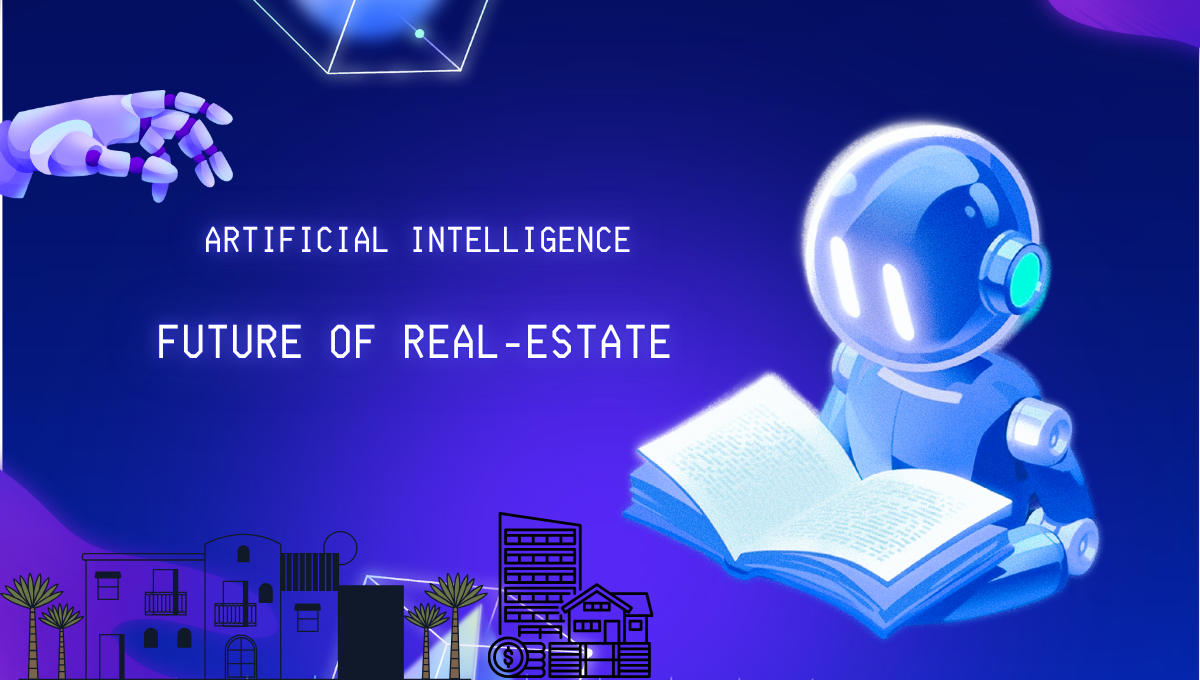The real estate industry, once known for traditional methods and slow adaptation to technology, is now undergoing a major transformation—thanks to Artificial Intelligence (AI). From automating property recommendations to predicting market trends and even personalizing buyer experiences, AI in real estate is reshaping the game for everyone involved—agents, investors, developers, and buyers.
In this blog post, we’ll explore:
How AI has already changed the real estate world
How AI is helping in real estate marketing
What the future of AI in real estate looks like
The biggest benefits and real challenges of using AI
How AI Has Already Changed Real Estate
Ai in real estate has already made a strong impact. Here’s how:
Smarter Property Searches
Gone are the days of endless scrolling. Today, AI helps property platforms show personalized recommendations based on your budget, preferred location, and search history.
Websites like Zillow, MagicBricks, and NoBroker use AI to understand user behavior and suggest the most relevant properties.
Accurate Property Pricing
AI tools analyze thousands of past transactions, market demand, nearby prices, and local conditions to predict the right property value. This helps both buyers and sellers avoid overpricing or undervaluing their assets.
Predictive Analysis for Investments
AI systems can identify future investment hotspots by analyzing crime rates, schools, upcoming infrastructure, and historical trends. Investors can make smarter decisions by depending on data-backed predictions.
Smart Property Management
For landlords and building managers, AI can:
Automate rent collection
Monitor maintenance needs
Screen tenants based on history and behavior
This results in smoother property management and fewer surprises.
Virtual Assistants and Chatbots
AI-powered chatbots are now handling common queries, scheduling property visits, and even helping with loan eligibility. Ai in real estate saves time and makes customer service faster.
AI in Real Estate Marketing
Marketing is one of the most competitive areas in real estate, and AI is giving realtors a powerful edge. Here’s how:
Personalized Advertising
AI tracks users’ online behavior, demographics, and preferences to show them ads for the most relevant properties. This leads to better conversion and lower ad spend.
AI-Generated Listings
Some tools now use AI to write property descriptions automatically. They can highlight the best features, suggest better headlines, and even translate listings for different audiences.
Smart Email Campaigns
Instead of sending the same message to everyone, AI tools help realtors:
Send personalized emails
Recommend properties based on interest
Predict who is more likely to buy or sell
AI-Powered Visuals & Virtual Tours
AI can enhance images, remove unwanted elements, and even stage a home virtually. This makes a property more attractive without the need for physical setup.
Better Campaign Insights
AI tracks what’s working and what’s not—whether it’s your Facebook ad, Instagram post, or website listing. It helps marketers optimize campaigns in real time.
The Future of AI in Real Estate
The current innovations are just the beginning. Here’s what we can expect in the near future:
Smart City Planning
AI can help governments and developers plan better cities by predicting population growth, traffic patterns, and housing demand in advance.
Automated Real Estate Transactions
From verifying documents to finalizing deals, smart contracts using blockchain + AI will make buying and selling homes faster, safer, and paperless.
AI + AR Integration
Imagine wearing AR glasses and having an AI assistant guide you through a virtual property tour, giving insights like lighting, structure, and future renovation ideas.
Fraud Detection & Risk Management
AI will be able to detect fake listings, financial fraud, or risky buyers even before the problem occurs.
Hyper-Personalized Real Estate Platforms
Future platforms may offer each user a fully customized experience—showing properties, agents, financing options, and legal help—all tailored by AI.
Benefits and Challenges of AI in Real Estate
Major Benefits:
1. Saves Time – AI automates routine tasks like lead management and listing updates.
2. Increases Accuracy – Data-based decisions reduce human error and guesswork.
3. Improves User Experience – Personalized recommendations and smart search make buying and renting faster.
4. Boosts Marketing ROI – Targeted campaigns lead to better results.
5. Data-Driven Decisions – Investors and buyers can make smarter choices with predictive analysis.
Real Challenges:
1. Data Privacy Issues
AI tools rely on massive user data. Protecting that data is crucial.
2. High Setup Cost
Smaller agencies or independent realtors may find it costly to adopt AI systems initially.
3. Over-Reliance on Technology
Some fear that too much automation might remove the human touch from real estate deals.
4. Bias in AI Models
AI trained on biased data may unintentionally discriminate or show unfair pricing.
5. Need for Training & Adoption
Professionals must learn how to use these tools effectively, which takes time and effort.
Conclusion
AI in real estate is not replacing professionals—it’s empowering them to work smarter, faster, and more effectively. Whether you’re a buyer, seller, agent, or investor, embracing AI tools can give you a competitive edge.
As technology continues to evolve, staying updated with the latest AI-powered innovations will be the key to success in the future of real estate.
